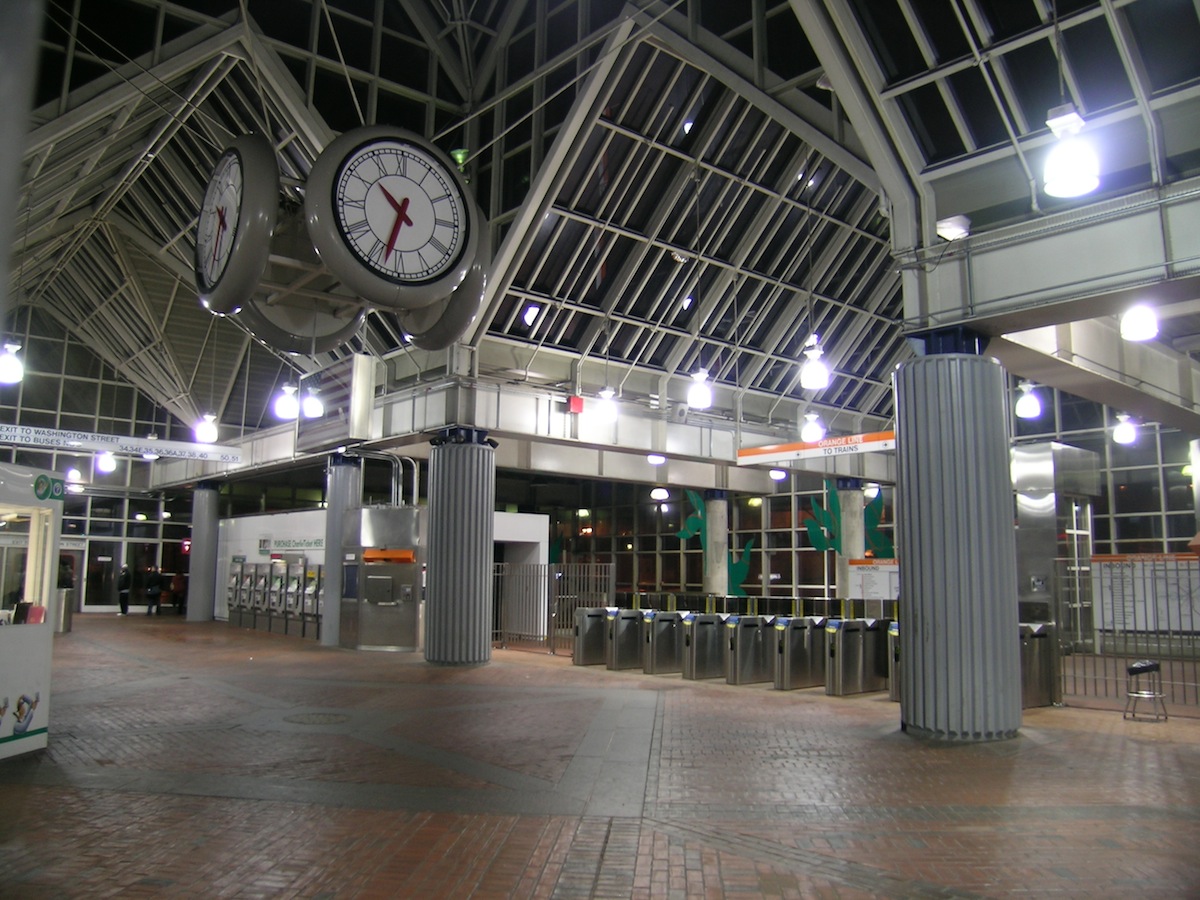Report: MBTA Janitors Are Doing Work They’re Not Properly Trained to Handle

Forest Hills Photos Uploaded By John Stephen Dwyer on Flickr
MBTA officials say that a new report commissioned by the Massachusetts Coalition for Occupational Safety and Health, which claims T janitors who are already overworked will be subject to poor and unsanitary conditions when staffing cuts go into effect in September, has a “very specific agenda.”
“They strongly oppose any efforts to implement cost-effective, performance-based service contracts,” said MBTA spokesman Joe Pesaturo.
The report, released Wednesday, ahead of a press conference with workers represented by 32BJ SEIU District 615, claims those cleaning MBTA stops and stations regularly pick up discarded needles without proper training on how to dispose of them as required by federal law, and are exposed to cleaning and disinfecting chemicals that contain hazardous ingredients that lead to serious health problems.
The report also claims janitorial staff are exposed to potential infectious bodily fluids—blood, vomit, and urine—as well as bacteria and viruses in the course of performing their daily cleaning duties, and don’t have enough supplies to clean these messes up properly. To come to their conclusions, MassCOSH conducted over 20 in‐depth interviews with a “representative sampling” of employees tasked with taking care of specific subway lines and stations on behalf of 32BJ SEIU District 615, the union that represents them.
The report is part of a continued effort to convince the MBTA that allowing staffing cuts due to a contract agreement with two cleaning companies will lead to messier stations for riders taking the MBTA, and a burdensome workload for janitorial staff.
“Based on our review of current health and safety conditions, we believe there is an urgent need for the MBTA management to take immediate steps to reassess the scheduled staffing cuts,” MassCOSH’s report said. “Increased workload causes fatigue and stress, resulting in negative health effects.”
Under the terms of an agreement signed in 2013 between two cleaning firms—ABM Industries Inc. and S.J. Services Inc.—and the T, the contracted companies are allowed to make adjustments to their staffing schedules and cleaning plans beginning in the second year of the contract, which starts September 1.
The union predicts that projected cuts will result in a reduction in staffing of 90 out of 315 janitors, or 29 percent of the current workforce.
Under the conditions of the contracts, however, the two companies must provide equal or better service at reduced staffing levels, otherwise the MBTA can “order them” to add additional employees at no cost to the transit agency.
The union has hosted numerous protests and met with MBTA officials on several occasions to call for a stop to the staffing cuts and received support from elected officials both in Boston City Hall and the State House who argued the same.
Earlier this month, MBTA officials offered to “lessen the blow” to the janitorial staffing by saving at least 10 jobs, but union representatives said the proposal put on the table by the transit agency was not enough, and didn’t address their greater worries for both employees and riders taking the T.
The complete report from MassCOSH can be read below:
MassCOSH Health and Safety Review for MBTA Janitors 8-12-14

